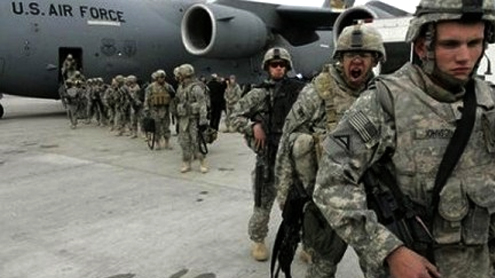 Mark Grossman’s three-day ‘charm offensive’ has apparently failed to ease the deadlock that has stymied Pakistan-US ties since the November 26 Salala attack in which 24 Pakistani soldiers were killed. A Pentagon inquiry report, rejected by Islamabad, has tried to portray the assault as a case of “friendly fire”. Salala has served as the proverbial last straw.
Mark Grossman’s three-day ‘charm offensive’ has apparently failed to ease the deadlock that has stymied Pakistan-US ties since the November 26 Salala attack in which 24 Pakistani soldiers were killed. A Pentagon inquiry report, rejected by Islamabad, has tried to portray the assault as a case of “friendly fire”. Salala has served as the proverbial last straw.
The November 26 NATO strike came as the culmination of a string of provocative US actions last year. The cumulative effect of such incidents has soured Pakistan-US ties, which knowledgeable observers hope will not prove terminal. Pakistan now insists that the US apologise formally for Salala, a demand unlikely to be fulfilled in an election year in the US and after the string of attacks in Kabul recently blamed by the US on the Haqqani network, which Pakistan is accused of harbouring in our tribal areas. Pakistan’s demand that the drone attacks in the tribal areas cease has been answered on Sunday by another drone attack. Islamabad has refused to reopen the NATO supply lines closed since the Salala attack until an apology and cessation of drone attacks are acceded to. The relationship therefore has reached an apparent cul de sac, despite both sides committing to further talks.
The list of clandestine US attacks in Pakistan is quite long. It now seems that the Salala incident is being used by Islamabad (with the military’s backing) as leverage to annul the murky Musharraf era carte blanche handed on a silver platter to Washington and renegotiate fresh terms of engagement. The focus of the Pakistan-US talks in future needs to include the issue of reimbursement of Coalition Support Funds withheld in the midst of troubled ties. Also, taxes and duties should be levied on all items transiting through Pakistan for the US/NATO troops in Afghanistan. It is said that the war on terror has cost Pakistan $ 78 billion in infrastructure damage and economic downturn. Islamabad must recover some of this cost. – Dailytimes












